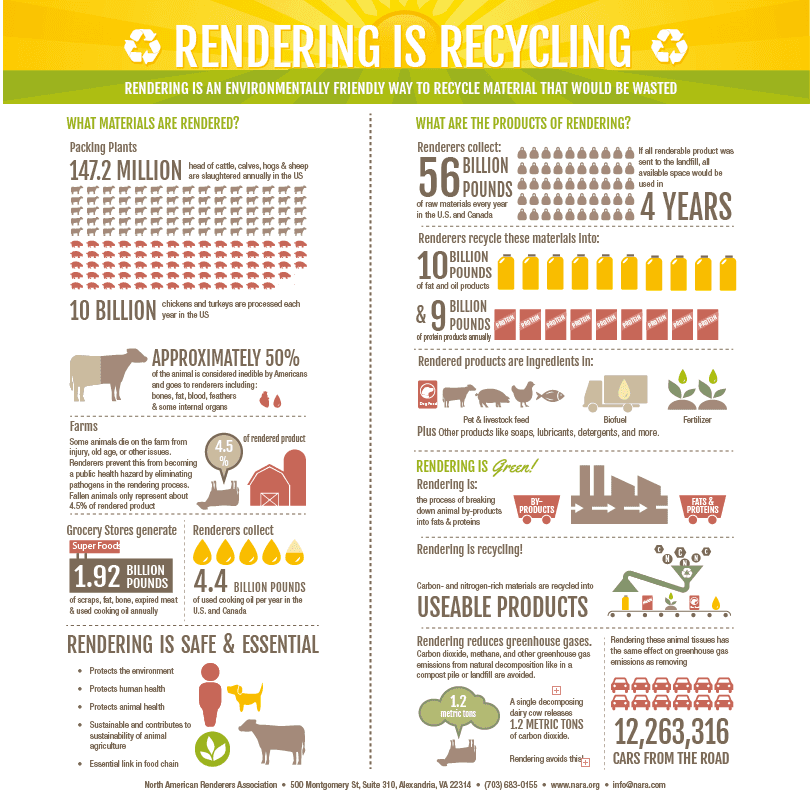
Rendering is Recycling
By, North American Renderers Association
February 19, 2025
Driven by science, the rendering industry invests heavily in research to enhance the value and safety of animal by-products, optimize the production of sustainable renewable fuels, and strengthen the environmental performance of rendering processes. Studies focus on improving nutrient recovery, reducing greenhouse gas emissions, advancing renewable energy applications, and ensuring compliance with international feed and food safety standards. This scientific foundation not only supports innovation and efficiency but also underscores rendering’s central role in the circular bioeconomy.

By, North American Renderers Association
February 19, 2025
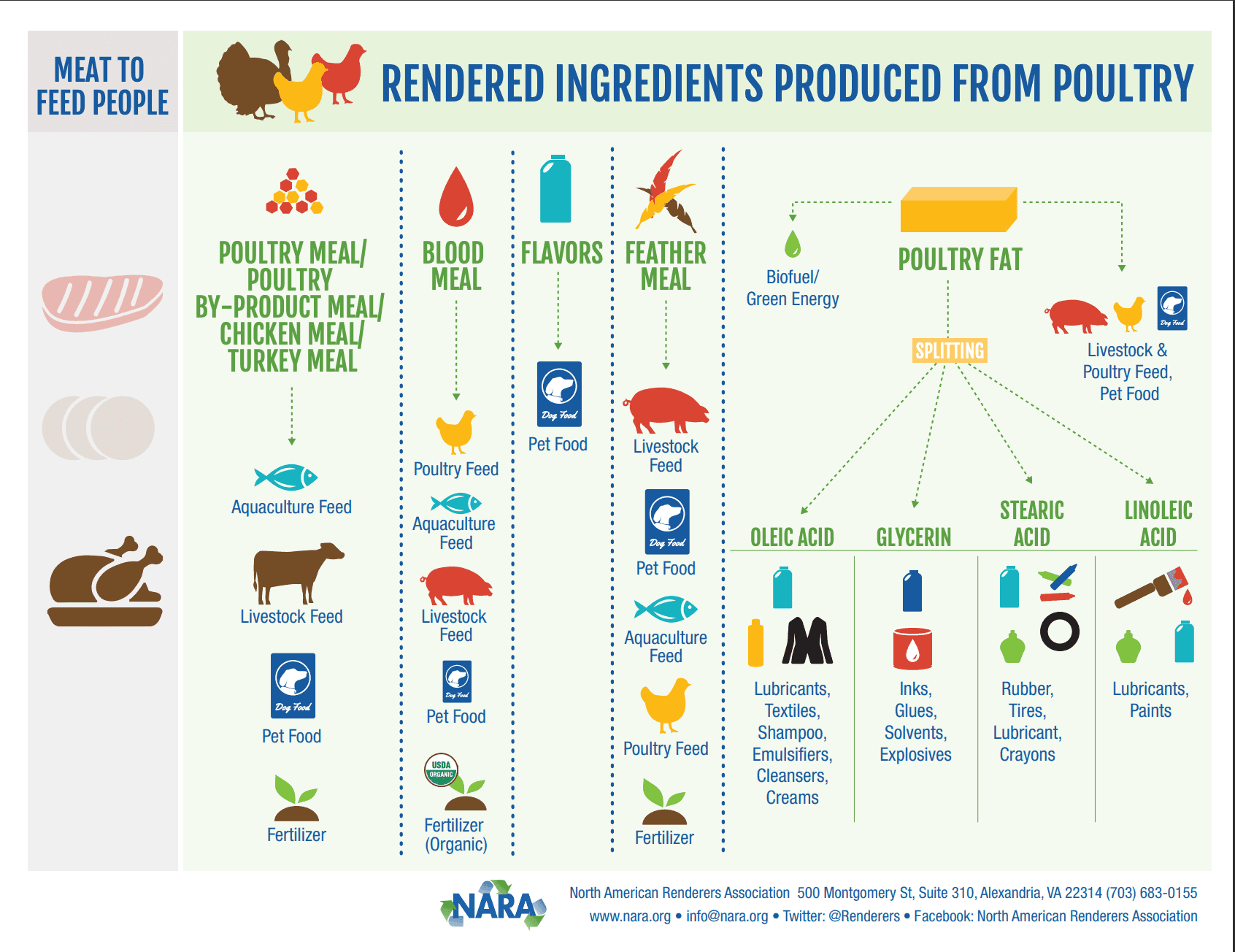
By, North American Renderers Association
February 19, 2025
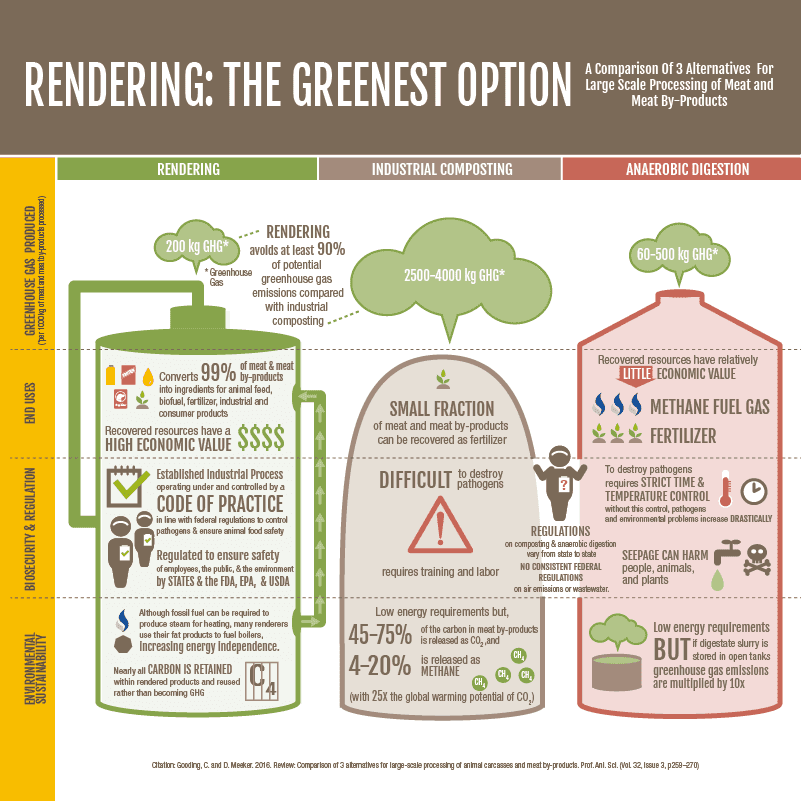
By, North American Renderers Association
February 20, 2025
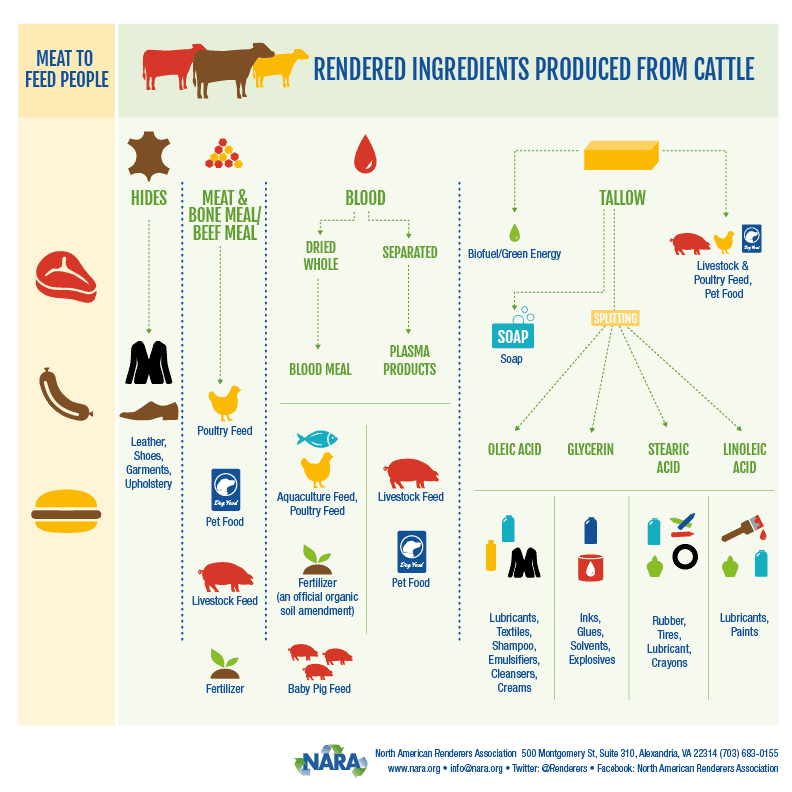
By, North American Renderers Association
February 19, 2025
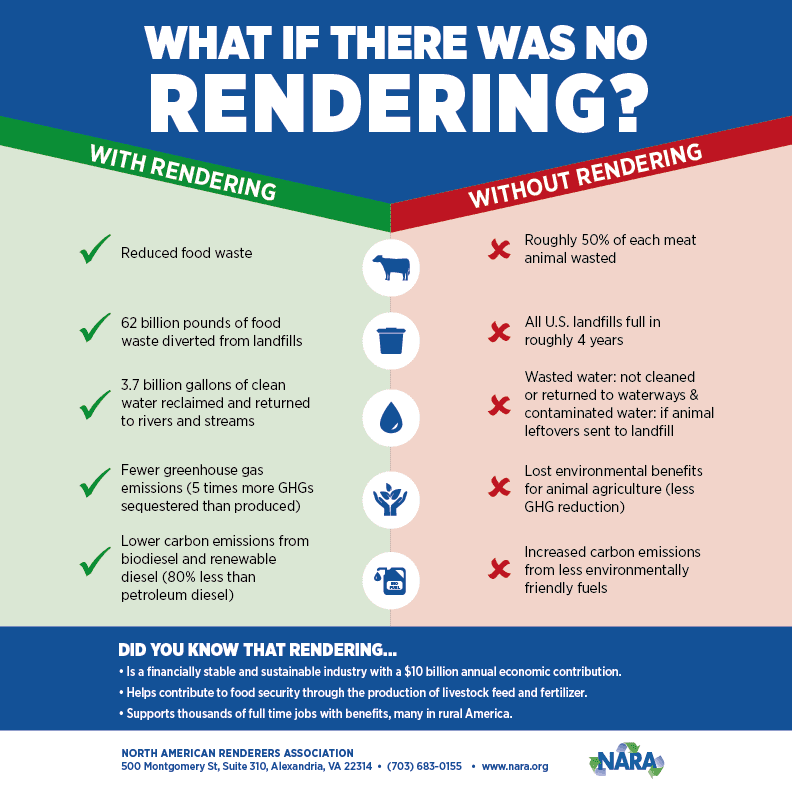
By, North American Renderers Association
February 20, 2025
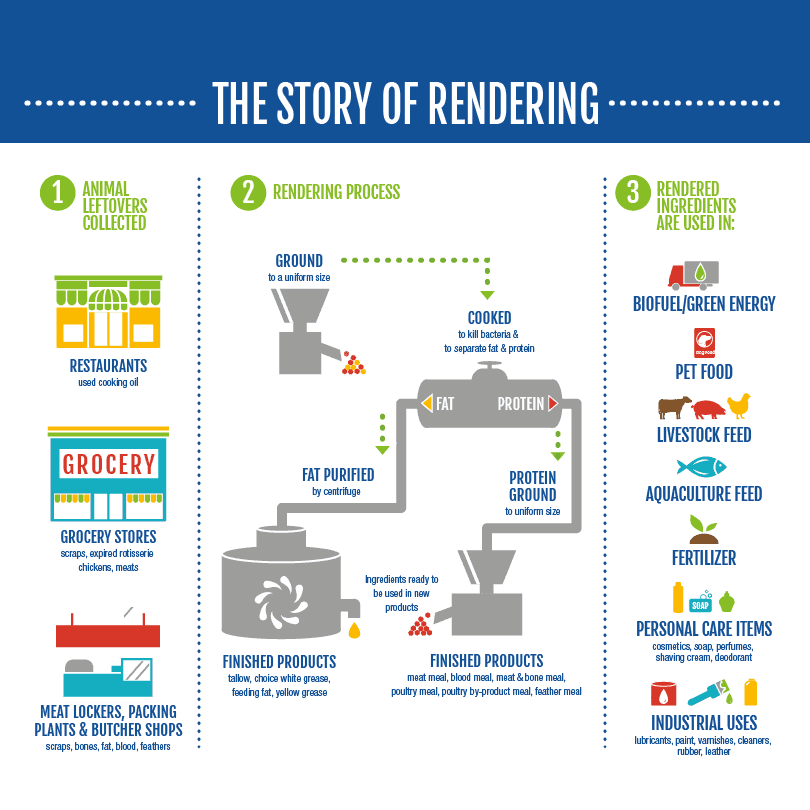
By, North American Renderers Association
February 19, 2025
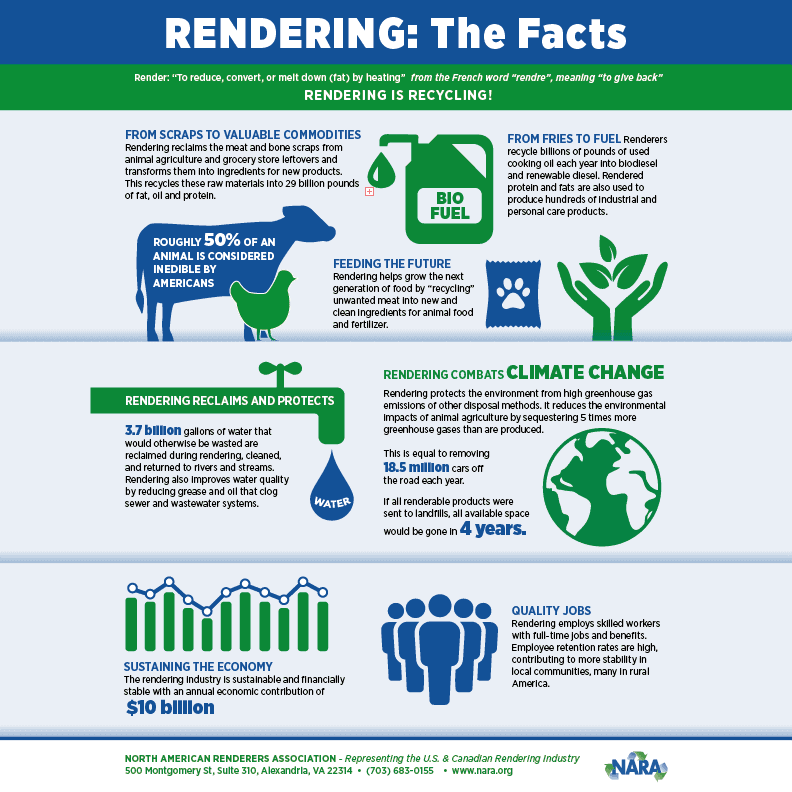
By, North American Renderers Association
February 18, 2025
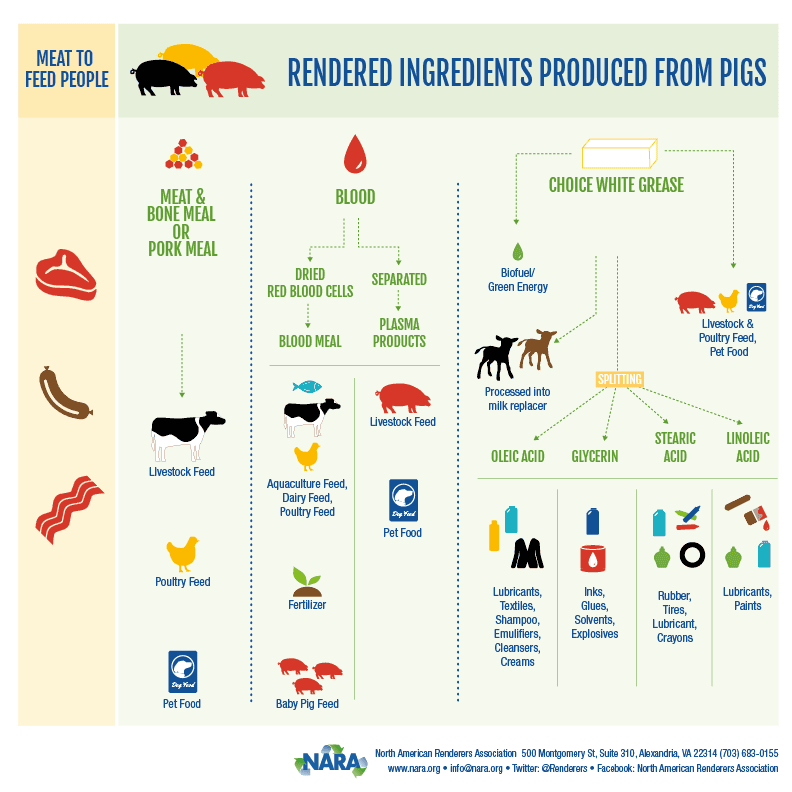
By, North American Renderers Association
February 19, 2025
1/1
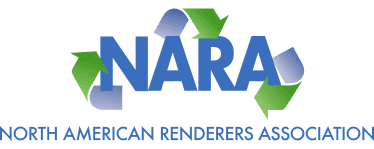

Developed by NARA in partnership with the rendering industry, the Rendering Code of Practice establishes standards for safe feed production, ensuring high-quality outputs and regulatory compliance. Certification under this code reflects a commitment to rigorous safety and quality protocols, supporting improved animal nutrition and responsible rendering practices. By achieving certification, organizations can enhance cost-efficiency, consumer trust, and sustainability, while meeting essential food safety requirements.
Certification under this code reflects a commitment to rigorous safety and quality protocols, supporting improved animal nutrition and responsible rendering practices. By achieving certification, organizations can enhance cost efficiency, consumer trust, and sustainability—while meeting essential food safety requirements.
The Fats and Proteins Research Foundation (FPRF) is a nonprofit organization dedicated to funding research that advances the utilization and development of rendered animal products. Since its founding in 1962, FPRF has supported more than 650 research projects aimed at improving the quality, safety, and sustainability of these products. The foundation operates independently of lobbying efforts, in compliance with 501(c) Illinois statutes.
In 2005, FPRF established the Animal Co-Products Research and Education Center (ACREC) at Clemson University in South Carolina. Its research spans a variety of sectors, including renewable fuels. Notably, studies on the combustion and emissions of animal fats have led to EPA approval for their use as fuel alternatives in steam production, highlighting the potential of rendered products in renewable energy solutions.

It is designed for you, someone eager to explore and deeply understand the rendering industry!
This practical guide equips professionals with the tools to navigate the world of rendering ingredients, including product categories, quality indicators, supply chain dynamics, and global trade perspectives, all framed within the principles of sustainability and the circular economy. Whether you are a supplier of rendering products, developing new ingredients, or entering new markets, this book provides clarity and confidence to make smarter, more sustainable decisions.